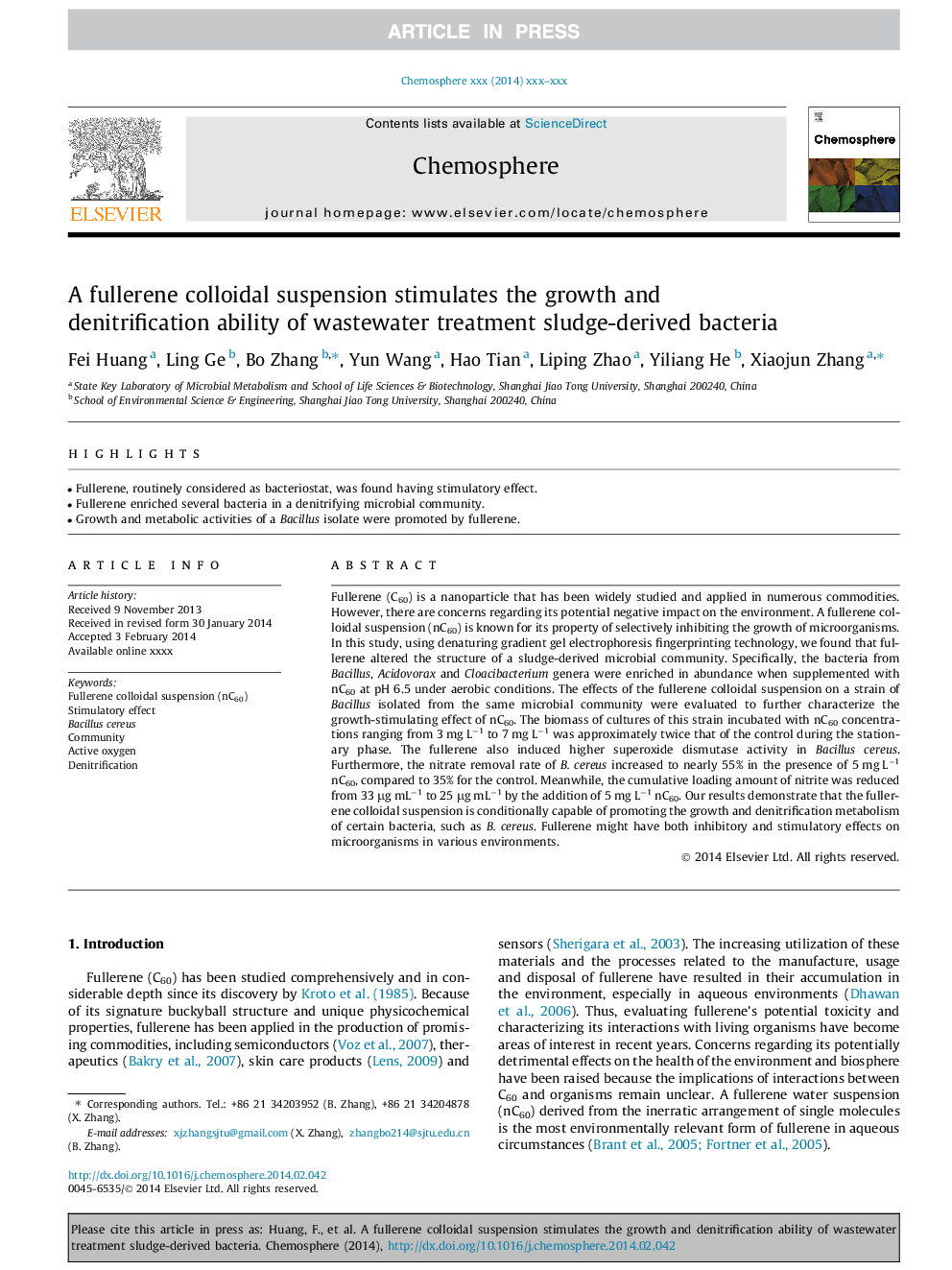| Article ID | Journal | Published Year | Pages | File Type |
|---|---|---|---|---|
| 6309437 | Chemosphere | 2014 | 7 Pages |
Abstract
Fullerene (C60) is a nanoparticle that has been widely studied and applied in numerous commodities. However, there are concerns regarding its potential negative impact on the environment. A fullerene colloidal suspension (nC60) is known for its property of selectively inhibiting the growth of microorganisms. In this study, using denaturing gradient gel electrophoresis fingerprinting technology, we found that fullerene altered the structure of a sludge-derived microbial community. Specifically, the bacteria from Bacillus, Acidovorax and Cloacibacterium genera were enriched in abundance when supplemented with nC60 at pH 6.5 under aerobic conditions. The effects of the fullerene colloidal suspension on a strain of Bacillus isolated from the same microbial community were evaluated to further characterize the growth-stimulating effect of nC60. The biomass of cultures of this strain incubated with nC60 concentrations ranging from 3 mg Lâ1 to 7 mg Lâ1 was approximately twice that of the control during the stationary phase. The fullerene also induced higher superoxide dismutase activity in Bacillus cereus. Furthermore, the nitrate removal rate of B. cereus increased to nearly 55% in the presence of 5 mg Lâ1 nC60, compared to 35% for the control. Meanwhile, the cumulative loading amount of nitrite was reduced from 33 μg mLâ1 to 25 μg mLâ1 by the addition of 5 mg Lâ1 nC60. Our results demonstrate that the fullerene colloidal suspension is conditionally capable of promoting the growth and denitrification metabolism of certain bacteria, such as B. cereus. Fullerene might have both inhibitory and stimulatory effects on microorganisms in various environments.
Related Topics
Life Sciences
Environmental Science
Environmental Chemistry
Authors
Fei Huang, Ling Ge, Bo Zhang, Yun Wang, Hao Tian, Liping Zhao, Yiliang He, Xiaojun Zhang,
